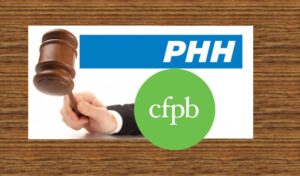 By now, you’ve probably heard that PHH won their case against CFPB on the anti- kickback provision under RESPA. The $109 million fine imposed by CFPB Director, Richard Cordray, against PHH was also invalidated by the Court. That’s great news for PHH, but what about the rest of the industry?
By now, you’ve probably heard that PHH won their case against CFPB on the anti- kickback provision under RESPA. The $109 million fine imposed by CFPB Director, Richard Cordray, against PHH was also invalidated by the Court. That’s great news for PHH, but what about the rest of the industry?
In the decision, the US Court of Appeals, District of Columbia, went beyond just a ruling on the RESPA issues and included in the ruling, their decision concerning PHH’s challenge to the constitutionality of the CFPB structure. Simply put, the Court found such a structure to be unconstitutional.
Wow! CFPB, with all their power, have been acting illegally under our Constitution. Who would’ve thought that our government would, and could, do such a thing? So…now what?
To solve the problem, rather than require that CFPB ceases operations until properly structured, the court decided, on its own, to have the Director of the CFPB come under the jurisdiction of the Executive Branch of the Government; the President. This being contrary to the original intent of the architect of the CFPB, Elizabeth Warren, and the sponsors and supporters of the Dodd-Frank Bill that created it.
Congress is now recommending that CFPB operates under a Committee or multi-member panel, to reduce the risk of arbitrary decision making and abuse of power, which further helps to protect individual freedoms. As you recall, it was established with a single Director, who could act independently, making rules and decisions as he sees fit. One decision brought us his ruling on the legality of PHH’s arrangement for a reinsurance captive. How’d that workout?
So where do we go from here? Although the PHH decision on the surface may be good for some, it may hurt the industry as a whole. Since the President can now determine the head of the CFPB, it gives that office much more power over the financial services industry.
Decisions on regulations and enforcements may, in the future, depend on what party is in office or the relationship of a financial institution to the then current administration. Talk about your special interest groups and the value of campaign contributions.
The obvious answer is to have the CFPB administered by a multi-member bi-partisan committee. Depending on the size of the committee, the Executive Branch may have the power to appoint some members, but not a majority. Will we ever get there? I don’t know, but I believe the current structure, with an independent Director, is not a good idea.
I guess (and fear) as usual, we’ll find out the hard way. Hopefully, that won’t take too long. BTW, what about all those enforcement actions taken by CFPB? Were they legal? Should they refund all the money they collected?
When performing their reviews, how will they now act and treat lenders after this ruling?
Stay compliant my friends…
